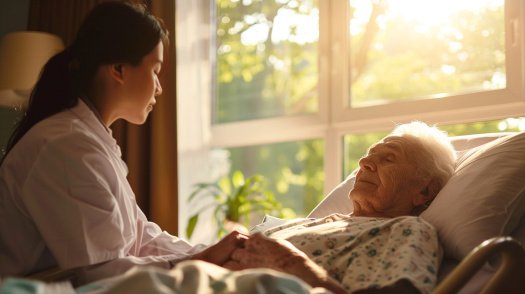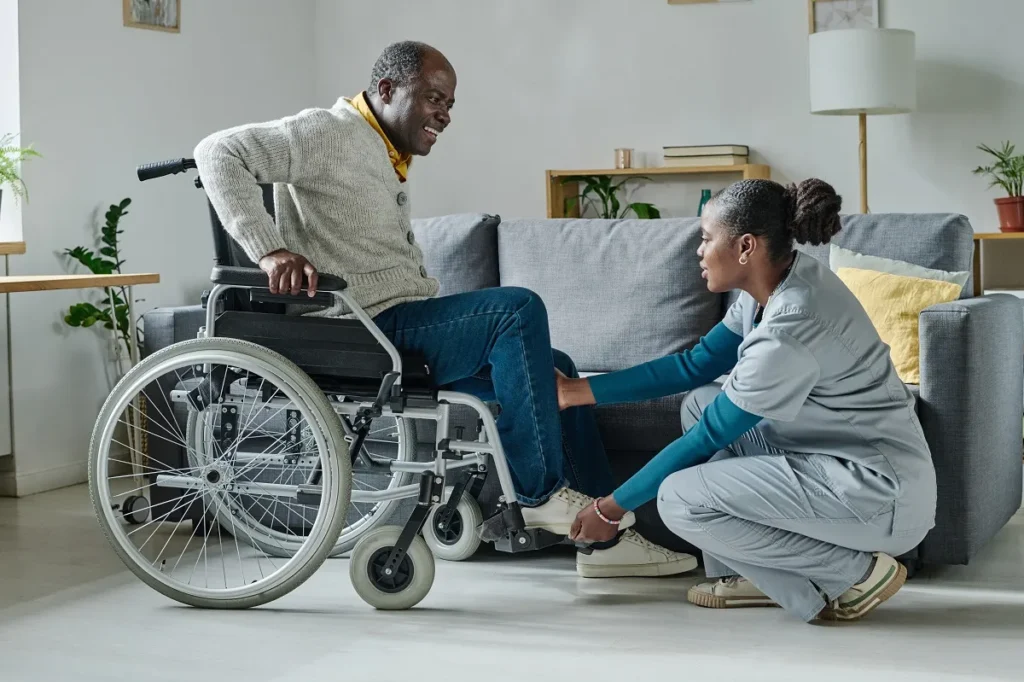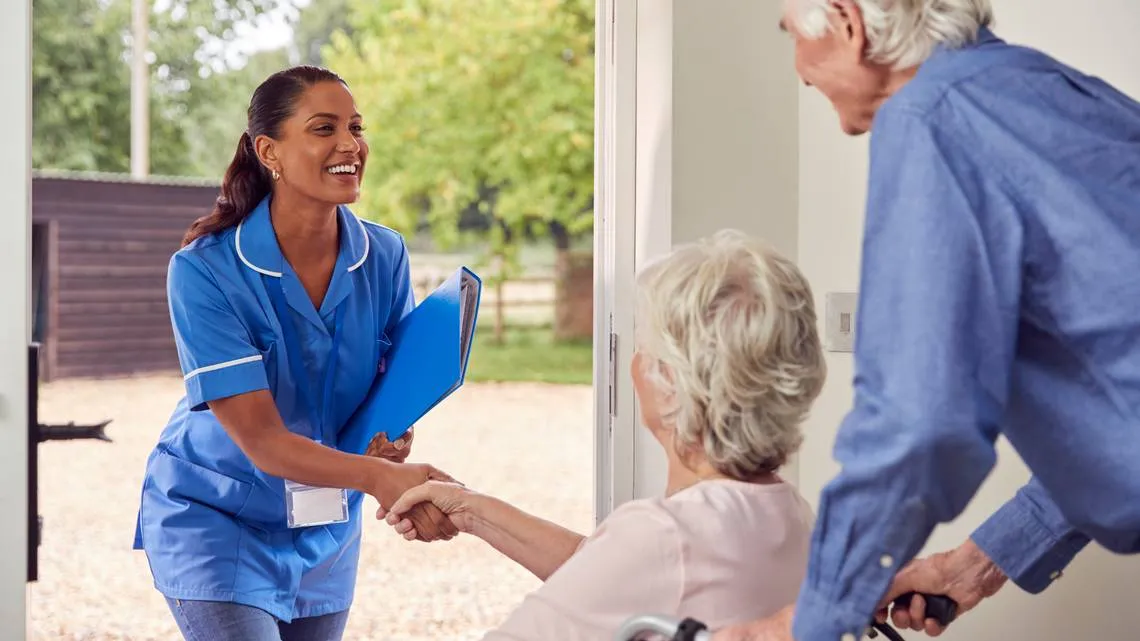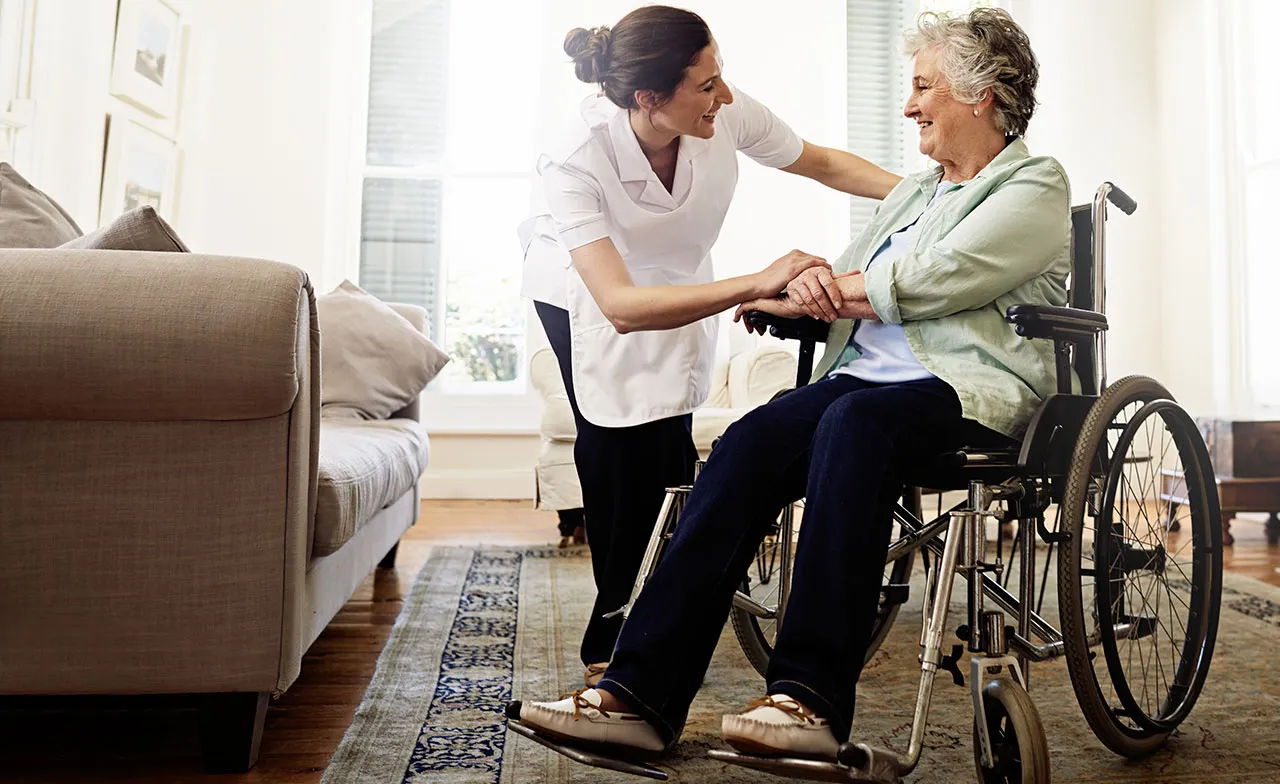As a person nears the end of a serious disease, care shifts from trying to cure them to making them comfortable, preserving their dignity, and improving their quality of life. With caring in-home palliative and end-of-life care, people can stay in their own homes, where they are close to family, memories, and a sense of peace. It is important for this type of care to meet the patient’s medical, emotional, and spiritual needs while also respecting their autonomy and honor.
Palliative care is a type of specialized medical care that helps people with serious illnesses deal with their symptoms and worry. Hospice care is only for people who are very close to dying. Palliative care, on the other hand, can be given along with treatments that can help the person get better. End-of-life care, which is a type of hospice care, helps people in their last few months, weeks, or days.

Why In-Home Care Matters?
People who are getting palliative or end-of-life care need in-home care because it gives them comfort, respect, and individualized care in a place they are comfortable with. Home care, on the other hand, lets patients stay in a place that holds memories for them and be with people they care about, which can greatly improve their mental health. It also provides personalized medical and non-medical help to make sure that each person’s wants and preferences are met.
In-home care gives patients a sense of control by letting them make choices about their care, which gives them more respect in their last days. Family members can also get professional help and emotional support, which can help them deal with the difficulties of caregiving. In the end, in-home care provides a caring and peaceful environment that protects quality of life until the very end.
Key Components of In-Home Palliative Care
Pain and symptom management, emotional and psychological support, spiritual care, help with daily tasks, and information for the family are all important parts of in-home palliative care. These parts make sure that patients get complete care that puts their comfort, respect, and well-being first. They also help caregivers by giving them advice and providing respite services.

Pain and Symptom Management
An important part of in-home palliative care is taking care of pain and other unpleasant conditions. People who are seriously ill often feel pain, sickness, tiredness, and trouble breathing, among other things. For people who are suffering, skilled medical workers like doctors and nurses make sure that the right medicines and treatments are given. You can also improve your health with non-medical methods like massage, relaxation techniques, and physiotherapy. Keeping an eye on patients and making changes to their treatment plans on a regular basis helps keep the best balance between pain relief and their general health. By taking care of symptoms properly, in-home care makes sure that patients have peace and respect in their last days while also cutting down on unnecessary trips to the hospital.
Emotional and Psychological Support
Having a disease that will take away your life can be very hard on both the person who has it and their family. As part of in-home palliative care, patients can get mental support through therapy, counseling, and talking to someone. Care providers help patients deal with worry, depression, and fear by being there for them and reassuring them. Families also get advice on how to deal with stress and sadness, which helps them get ready for when their loved one dies. To help people stay emotionally strong, care plans often include things like support groups, therapeutic conversations, and mindfulness methods. This part of in-home care creates a safe space where patients and their families can feel acceptance, warmth, and peace.
Spiritual and Holistic Care
For many individuals, spiritual well-being is an important part of their journey through illness. In-home palliative care takes into account and supports different spiritual practices and beliefs by offering chaplaincy services, faith-based support, or holistic therapies like music and meditation. There is a lot of support for patients to think about their values, find meaning, and deal with any spiritual worries they may have. People who get this kind of care can find peace, improve their ties to their faith or personal beliefs, and get ready for the change with honor. By taking care of the patient’s mental needs, caregivers make sure that the care is more than just physical health-focused. This gives the patient comfort and peace of mind in their last moments.
Assistance with Daily Activities
Everyday jobs like bathing, dressing, eating, and moving around get harder as the illness gets worse. Personal care help is part of in-home palliative care to help patients keep up their hygiene, dignity, and freedom as much as possible. To make sure the person is comfortable and avoid problems like bedsores, caregivers gently help with jobs like grooming, feeding, and repositioning. To make things easier on family members, housework like making meals and light cleaning may also be included. With this help, patients can stay in a known and comfortable place without feeling like they are a burden on their family and friends.

Family Support and Education
Family members are very important when it comes to caregiving, but they often need advice and mental support to get through this tough time. Palliative care teams that come to the patient’s home teach the family about the illness, the signs, and how to give basic care. They teach people how to give medications, help people move around, and make things more comfortable. In addition, they offer counseling to help families deal with grief, stress, and worry. There may also be respite care services that can help family workers take a break while still making sure their loved one gets good care. By giving families information and support, in-home care encourages a kind and cooperative way of handling end-of-life care.
Challenges of In-Home Care
In-home palliative care can help with comfort and dignity, but families may have to deal with problems like mental stress, financial stress, and coordinating medical care. Caregivers often have trouble juggling their duties, but it’s important for them to stay in touch with healthcare workers at all times. Families can get through these tough times with the right planning and help.
Emotional Strain
Taking care of a loved one who is dying at home can be very hard on your emotions. Family caregivers go through a lot of stress, worry, and sadness when they see a loved one’s health get worse. For many, constant caring duties cause burnout, which makes them physically and emotionally tired. It’s normal to feel helpless and sad, which is why mental support is so important. Caregivers can deal with stress better with the help of professional therapy, support groups, and respite care services. Families can be kind to others while also taking care of their own mental health by focusing on emotional health.
Financial Considerations
Families may worry a lot about how much in-home palliative care costs. While insurance or government programs may cover some costs, others, like private nursing care, medical equipment, and medicines, can be hard on the wallet. A lot of families have trouble paying for care and their other daily costs. Finding ways to get money from insurance, care programs, or charitable groups can help make things easier. Patients can get the care they need without having to go through too much financial stress if they plan ahead and talk to their healthcare providers about their financial choices.
Coordination of Care
Family workers, medical professionals, and support services must be able to talk to each other and work together well in order to manage in-home palliative care. Taking care of medicines, managing symptoms, and getting emergency care can be hard. If health care workers don’t talk to each other clearly, it could delay treatment or cause confusion about care plans. Setting up a clear plan with a dedicated care team, keeping medical notes, and using telehealth services can all help with coordination. A well-structured method helps make sure that care runs smoothly, lowers stress, and gives the patient ongoing, high-quality support.
Role of Hospice in In-Home End-of-Life Care
Hospice care is for people who believe they will not live more than six months. It focuses on:
- Taking care of complaints without harsh treatments
- Giving patients and their families emotional and spiritual help
- Making sure a quiet and honorable death
Conclusion
In-home palliative and end-of-life care is kind and patient-centered, putting comfort, dignity, and mental well-being first. Families can make sure their loved ones get the help they need and keep a sense of normalcy and control in their last days by choosing in-home care.







